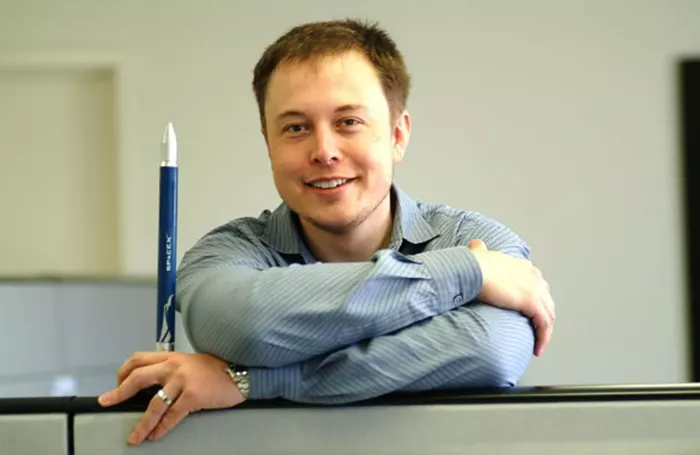Elon Musk’s Early Immigration Challenges Highlight U.S. System Flaws.
Reports indicate that Elon Musk worked illegally in the United States during the early stages of his career. This revelation sheds light on some significant challenges within the U.S. immigration system. Many find this situation ironic, given Musk’s outspoken stance against illegal immigration. However, the details emphasize the difficulties international students and entrepreneurs face in obtaining legal work authorization in the U.S. Despite his advocacy on various issues, Musk has spent little time discussing the need for reforms in the U.S. immigration system.
Background on Musk’s Immigration Status
Long before he became a major supporter and donor of Donald Trump, South African-born Elon Musk worked illegally in the U.S. as he launched his entrepreneurial career. He abandoned a graduate studies program in California, as reported by Maria Sacchetti, Faiz Siddiqui, and Nick Miroff in The Washington Post.
Musk, alongside his brother Kimbal, founded a company later known as Zip2 without having the legal right to work in the country. Kimbal Musk has openly discussed their illegal status, revealing that he lied at the U.S.-Canadian border to attend a business meeting in Silicon Valley. Immigration attorney Ira Kurzban noted that this constitutes “fraud on entry.” Kimbal could have faced a permanent ban from the U.S., yet he eventually became the CEO of Musk’s first company.
Musk arrived in Palo Alto in 1995 to pursue a graduate degree at Stanford University but never enrolled in any classes. Instead, he focused on his startup. This choice resulted in at least two immigration violations: failing to take classes violated his student status, and he worked without authorization in the U.S.
Musk could not continue operating a company that accepted venture capital without legal status. Reports indicate that he was out of status for more than a year. A person from Zip2’s human resources department in 1997 recalled processing work visas for the Musks and other family members under a category for Canadians allowed by the North American Free Trade Agreement.
International Students Face Major Barriers
Musk’s experience reveals significant issues within the U.S. immigration system. For international students, transitioning to a work visa after their studies is often challenging. While international students can work under Optional Practical Training (OPT), this does not guarantee employment in the U.S. once the OPT period ends.
To work long-term, international students typically need to secure H-1B status. However, since 1997, the demand for H-1B visas has consistently exceeded supply, leading to an annual lottery system. In recent years, U.S. Citizenship and Immigration Services (USCIS) has only selected about 25% of applicants. The annual H-1B cap is set at 65,000, with an additional 20,000 exemptions for graduates of U.S. universities, amounting to only 0.05% of the U.S. labor force.
Furthermore, the limited number of employment-based green cards and per-country caps can result in lengthy wait times, particularly for applicants from India.
Lack of Entrepreneur Visa Options
In a 2021 interview, Kimbal Musk noted that he and Elon would have followed the law if it were practical. He expressed frustration about the lack of a visa for startup founders, stating, “I was definitely illegal.”
Kimbal’s observation is accurate; U.S. law does not currently offer an immigrant entrepreneur visa. Congress had an opportunity to create such a visa as part of the CHIPS and Science Act in 2022. The House passed a provision allowing individuals to gain permanent residency after meeting specific startup milestones. However, this provision was blocked by Sen. Charles Grassley (R-IA), who also opposed exemptions from annual green card limits for certain graduate degree holders.
According to the National Foundation for American Policy (NFAP), 55% of billion-dollar startups in the U.S. have at least one immigrant founder. Additionally, nearly two-thirds (65%) of the top AI companies in the U.S. were founded or co-founded by immigrants, and 70% of full-time graduate students in AI-related fields are international students.
Limited Immigration Changes Under Trump
An analysis of immigration policies during Donald Trump’s presidency shows that his administration did not implement measures to expand opportunities for high-skilled foreign nationals. Courts blocked attempts to enforce stricter regulations on international students who lost their immigration status. Additionally, the Department of Labor proposed rules that would have priced H-1B visa holders and employment-based immigrants out of the job market. H-1B denial rates surged until legal challenges halted these practices.
Musk has donated over $132 million to support candidates, primarily to elect Donald Trump. However, he may be disappointed if he expects Trump to ease the path for aspiring immigrants, similar to the young Elon Musk, seeking success in America.
Related topics:
- Trump labels the U.S. a ‘garbage can’ during immigration speech in Arizona.
- Immigrants Boost the US Economy by Sending Billions Back Home
- Canada to Lower Immigration Goals as Trudeau Admits Policy Shortcomings


